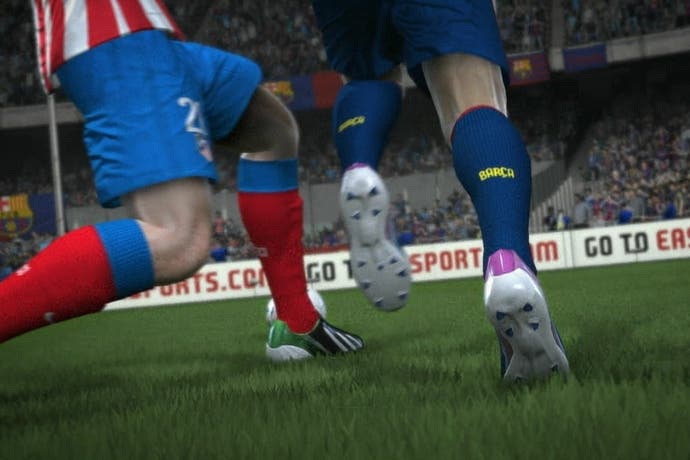EA Sports outlines plan to bolster FIFA security as next-gen consoles loom
"We think very seriously about it."
FIFA, with its card-trading expansion FIFA Ultimate Team, has suffered more than most games when it comes to compromised player accounts.
Eurogamer has reported on the issue a number of times in the past, and revealed that some players have lost out heavily, particularly with Microsoft Points on Xbox 360.
EA and Microsoft have always maintained that hacking is not at play here - rather, it is the work of phishing and the sheer popularity of FIFA Ultimate Team packs that mean the game suffers more malicious attacks than others.
But with the next generation of consoles looming on the horizon, both of which promise increased connectivity and easier access to content, EA faces an uphill battle as FIFA 14 hits Xbox One and PlayStation 4 later this year.
So, what's EA doing about it? That's what we asked EA Sports boss Andrew Wilson at E3 last week - and he admitted it was an important question EA should answer.
"We haven't had any major or serious attacks. You never say never, but we understand the value of information and privacy and the value of maintaining the integrity of the data."
EA Sports boss Andrew Wilson
Wilson told us that Microsoft and Sony are re-architecturing their networks to increase security, adding double authentication among other things. As for EA, Wilson said the company has started investing in a brand new ID system to be built on top of the first-party networks that will be rolled out this year. "That should make gamers feel better," Wilson said.
"We haven't had any major or serious attacks. You never say never, but we understand the value of information and privacy and the value of maintaining the integrity of the data. We are investing heavily - I mean heavily - in that and I believe first parties also are."
Most of the problems around FIFA Ultimate Team and compromised accounts, Wilson said, are the result of malicious intent. He insisted EA Sports' new architecture will help block these, but it is also investing in task forces set up to spot unusual behaviour early. "We think very seriously about it," Wilson added.
Some problems are not the result of phishing or any kind of malicious intent, rather, they're the result of inadvertent user error, Wilson said.
"When you get more and more people operating online and you're getting more and more things moving around - buying, selling and trading among folks - there are errors," Wilson said. "You push X when you should have pushed Y, A when you should have pushed B. Things happen.
"We get a lot of contacts from our gamers saying, 'hey, listen, my team disappeared.' We've put a process in place to try to figure out how that happened. We're investing heavily at a customer experience level, where I think we're getting better - we've got work to do there - but we're getting much better and investing there, and with a live ops team inside of FIFA that has the ability to go in and evaluate that account quickly and try to figure out what happened.
"In cases where we see there has been user error, typically we will work with that user to try and reinstate them back to where they should be, but help them understand that they need to be careful in this process, because we won't keep doing it."
"There's a contact, process and education that's happening to try to help us all collectively as we march into this new frontier, to deal with the buying, selling and trading of hundreds and thousands of pieces of digital content."
So, EA's three point security plan: re-architectured networks, combating malicious intent and educating gamers on user error. Fingers crossed it works.









